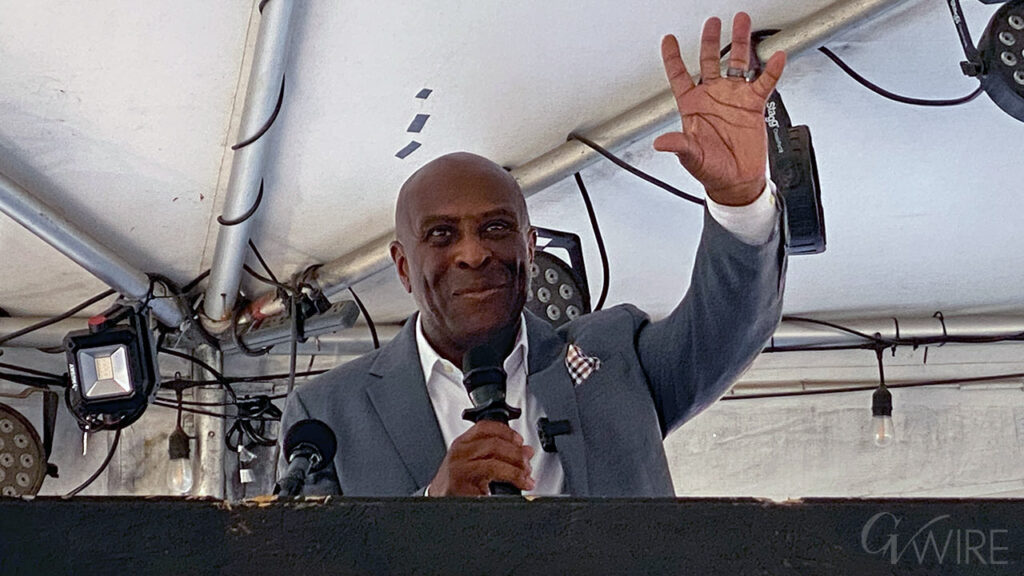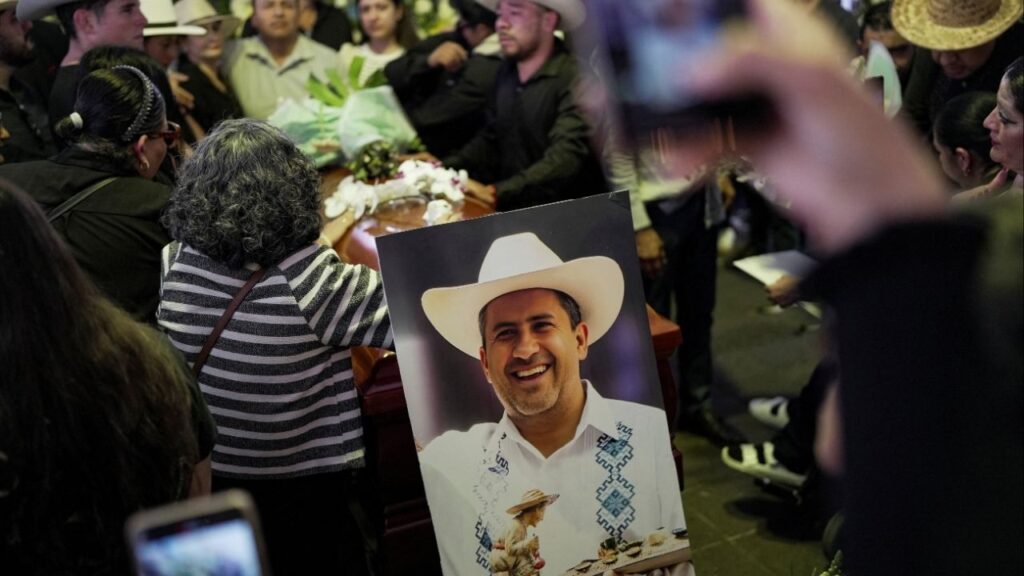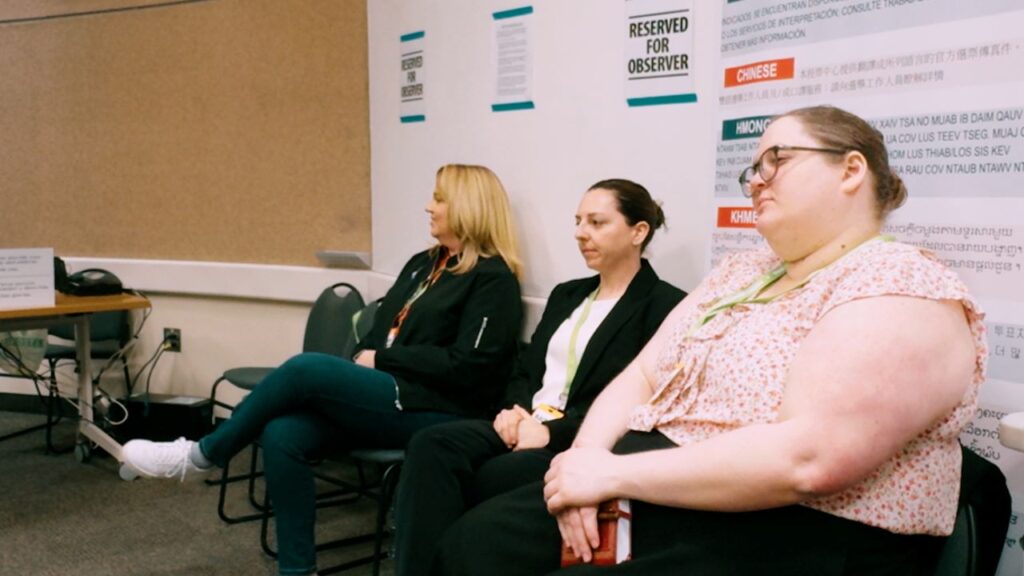Nine million children live in U.S. households with at least one noncitizen adult who could be affected by immigration enforcement. Heightened immigration enforcement is stirring anxiety among children whose parents are vulnerable to deportation. (Jimena Peck/The New York Times)

- Nine million children live in U.S. households with at least one noncitizen adult potentially affected by enforcement.
- Children report increased anxiety, difficulty concentrating, and fear of their parents being deported daily.
- Families alter routines, avoiding public spaces and keeping children home from school due to deportation fears.
Share
During President Donald Trump’s first term in the White House, Nadene Casteel’s students at an elementary school near Houston lamented that his border wall, as they understood it, would prevent them from seeing their grandmothers and other relatives in Mexico.
These days, she said, they are terrified that immigration agents will take away their parents.
“I have had kids coming to school saying, ‘Daddy’s gone — Daddy can’t come home,’” she said.
Trump focused his immigration crackdown on the southern border during his first term. His administration separated thousands of migrant children from their parents after they had crossed into the United States. The policy was intended to discourage family migration, and it set off public outrage as images surfaced of weeping toddlers pulled from their mothers’ arms.
Heightened Anxiety Under New Policies
This time, Trump has shifted his attention to the interior of the country, as he seeks to fulfill his pledge to carry out mass deportations — a goal that has drawn relatively broad support. And teachers, parents and other caregivers say the very public detention and deportation effort is taking a particularly heavy toll on young people in immigrant families.
“Every day I worry they could take my mom,” Ximena, 11 — who was born in California and whose Mexican mother has lived in the United States for decades — said before breaking into tears.
Nine million children, 17% of all 5- to 17-year-olds, live in a U.S. household with at least one noncitizen adult who could be affected by immigration enforcement, according to a report released this month by the Kaiser Family Foundation. The share is 1 in 3 children in California and about 1 in 4 in Nevada, New Jersey and Texas.
Within hours of his inauguration, Trump’s administration rescinded a long-standing policy that had generally barred immigration agents from entering schools, houses of worship and other “sensitive” locations.
“Criminals will no longer be able to hide in America’s schools and churches to avoid arrest,” said a statement issued by the Homeland Security Department that ricocheted across social media and news outlets.
There have been no reports of Immigration and Customs Enforcement actions inside schools. But rumors and, in some cases, sightings of agents around schools have stirred anxiety among parents and children.
“You say my child can be safe with you,” read a text from a parent to Casteel that she shared with The New York Times, “but the problem will be for us to go drop him off and pick him up later.”
Daily Life Disrupted by Deportation Fears
As Times reporters have been interviewing people across the country about the impact of the crackdown, the effect on school-age children has emerged as a recurrent concern among psychologists, teachers and parents. They said many students were having trouble concentrating. Some were more fidgety. Others had become disruptive. And still others were notably subdued.
In interviews in Colorado, Ohio and Texas, young people talked about the impact on their lives.
Parents agreed to allow their children to speak to the Times on condition that only first names be published.
Manou, a Haitian girl in Columbus, Ohio, summed up her life in recent months like this: “We just go to school and back, school and home.”
Her family trekked to the southern border two years ago and found their way to Columbus, where they felt safe and settled.
They qualified for Temporary Protected Status, a U.S. program that shields people from deportation when they have come from countries in upheaval. Manou’s mother and father got jobs at FedEx.
But their routine has been upended by Trump’s return to the White House, she said.
Her parents kept Manou, who is a senior, and her two younger siblings home from school for a week after Trump was sworn in. Her 9-year-old sister still refuses to go to school many days, fearing ICE could separate her family.
Manou, who is 17, is not allowed to go to the gym or take her siblings to the public library.
Gone are outings with friends and trips to visit relatives in other states.
“We would go to the park, do barbecue with friends,” Manou said. “Now we can’t do anything.”
The Trump administration recently announced that it was terminating Temporary Protected Status for Haitians. While that decision is facing court challenges, her family worries that they would be forced to leave the country if they were stripped of the status.
Returning to Haiti, where much of the capital and some other parts of the country are no longer under government control, and violence is rampant, is an impossibility, she said.
“It’s so hard for us,” Manou said, fighting tears. “We are so tired. We are scared here. We are scared to go back to our country.”
Dreams and Aspirations Amid Uncertainty
But she has not lost hope. She has been accepted into a U.S. college and continues to nurture her dream of working for the FBI or CIA.
Until this year, Aianna, the daughter of Mexicans living in the U.S. without legal permission, was a carefree 10-year-old girl whose biggest concern was making sure her pets — a bunny named Chopper, three cats and a dog — were happy and healthy.
Aianna’s family lives comfortably in Denver. Her father has a house-painting business. Like Aianna, her two siblings are also U.S.-born, including a sister who is in the Navy.
Aianna’s parents, who crossed the border three decades ago, tried to avoid discussing immigration issues in front of their fourth grader. But at school, children began talking about ICE.
One of her classmates, Jesus, shared that agents had come to his neighborhood.
Amid intensified enforcement, Aianna’s mother decided to sit her daughter down to explain that a relative would come forward to care for her should ICE detain them. She reassured her that they would not be separated forever.
Aianna said that she couldn’t help but think about it.
“Sometimes, at night, it’s hard to fall asleep.”
In class, she said, “I worry and just zoom out.”
Anderson arrived in the United States two years ago from El Salvador, after his father, who had crossed the border a few years earlier, opened a car repair shop in Columbus.
Anderson quickly mastered English.
A history buff, he often texts his teacher to ask for extra material — about the Marshall Plan, the Constitution, she said — and Anderson aspires to be a social studies teacher.
But Anderson and his father are in the country unlawfully.
Whenever there are rumors of ICE operations, or unfamiliar vehicles in their neighborhood, Anderson’s father urges him to stay home from school.
“I don’t want to do that, because the reason I go to school every day is because I want to be successful,” said Anderson, who is in 11th grade. “And, also, in my school I have a lot of teachers who help me and who protect me.”
So he goes to school every day but has scrapped soccer, bowling and baseball.
If he could, Anderson said, he would ask Trump to give him and other people in this country illegally the chance to stay and prove their worth.
“We are not criminals,” he said. “We are just trying to work hard.”
He added: “I’m scared, but I’m focused on my goals. That’s the only thing I try to think about.”
Melinda, 17, entered the country legally and has a pending application for a green card as a dependent of her mother, a refugee from Rwanda.
But each time that she and her mother leave their apartment in Columbus, they carry documents to prove that they are lawfully in the United States, just in case they are stopped by immigration agents or police officers.
Melinda is especially anxious for her friends who aren’t in the country legally, or who have parents in the country unlawfully.
“The president should deport criminals,” she said. “He should forgive people who work hard for this country and pay taxes.”
An honor roll student, she said that their plight had motivated her to become a lawyer.
Pabi, 17, will be the first in her family to attend college when she enrolls at the University of Colorado Boulder next fall.
But these days, she can’t help but wonder whether her parents and brother will still be in the United States when she graduates. They are in the country without legal permission.
“It’s that constant fear, like any moment in time your family could be stripped away,” she said, sitting on the steps of the state Capitol after participating in an immigration rally in Denver last month.
Her parents sneaked across the border 25 years ago from Mexico. Since then, she said, they have consistently filed their tax returns, hoping that Congress would eventually pass immigration reform to adjust their status and that of others. However, the chance that that will happen has only grown slimmer, while the threat of deportation looms larger.
Her brother, 26, is a recipient of Deferred Action for Childhood Arrivals, an Obama-era program that has protected from deportation hundreds of thousands of immigrants brought to the country as children. But DACA has been entangled in legal battles since Trump tried to end it during his first term, and its survival remains at risk.
On a recent evening, Pabi’s mother arrived home from her construction job in paint-splattered and dusty work clothes, washed up and helped her daughter slip into a gold, shimmery gown for senior prom.
She marveled at her daughter — all grown up, she said, ready to take part in a quintessential American ritual.
“See, this country is where we belong,” said Pabi, ‘‘where we celebrate special moments together and make happy memories.”
Then, on further reflection, she said, “It could start out as a good day, but we can’t be sure anymore that it will end that way.”
—
This article originally appeared in The New York Times.
By Miriam Jordan/Jimena Peck
c. 2025 The New York Times Company



















